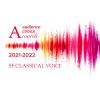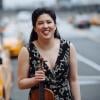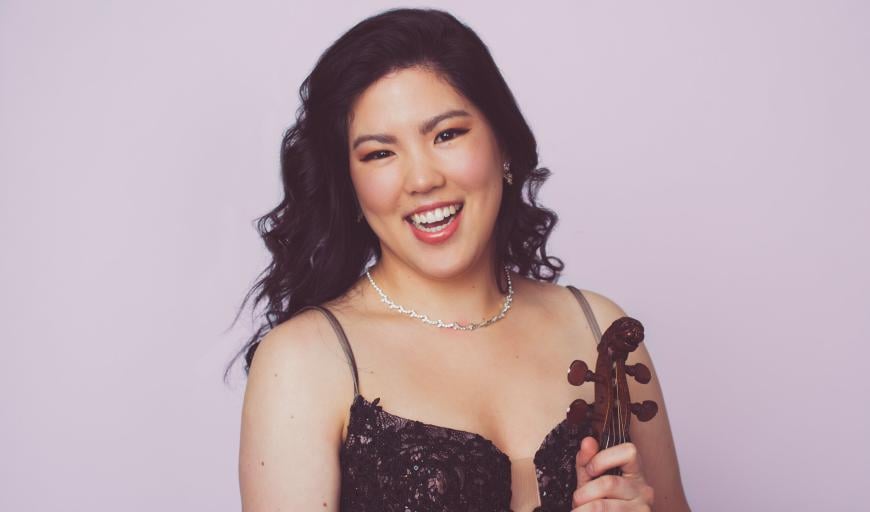
Reaching the end of a 60-minute conversation, Rachell Ellen Wong — a violinist whose deft agility with her gut-string instrument and Baroque bow captured a rare, first-ever early-music Avery Fisher Career Grant in 2020 — spins out the secrets fueling her achievements. Instead of more hours of practice, it’s pickleball, friends, family, and bunnies that infuse her with energy. More specifically, what drives the fierce devotion expressed in her musicality — in addition to a love of the classical repertoire, which she’s adored since childhood — is a competitive, all-in spirit, and that includes time spent with beloved people who remind her to kick back, take a hike, have a chat, and hang out with her pets.
“I have always been a person who needs time away from music. I don’t practice as much as everybody else. What I really love to do is perform and make music with other people. And I’ve always been big into sports, and that has kept me sane. I recently discovered pickleball. I’m pretty much obsessed. I play every day, and I can play eight hours a day. I’m thinking about doing tournaments and stuff. I like spending time with friends, going hiking with my parents in Washington, and spending time with my bunnies. I have three. I’ve had rabbits since I was 9. They’re special animals. They love music, and they’re clear on what they like and don’t like. My girl loves deep sounds, like when my fiance Andrew plays his shoulder cello and plays Bach. They all love Baroque stuff, but they hated Shostakovich. It was too loud, too much sound. Bach, they come back and watch me play. They nudge me and remind me to take a break and pet them.”
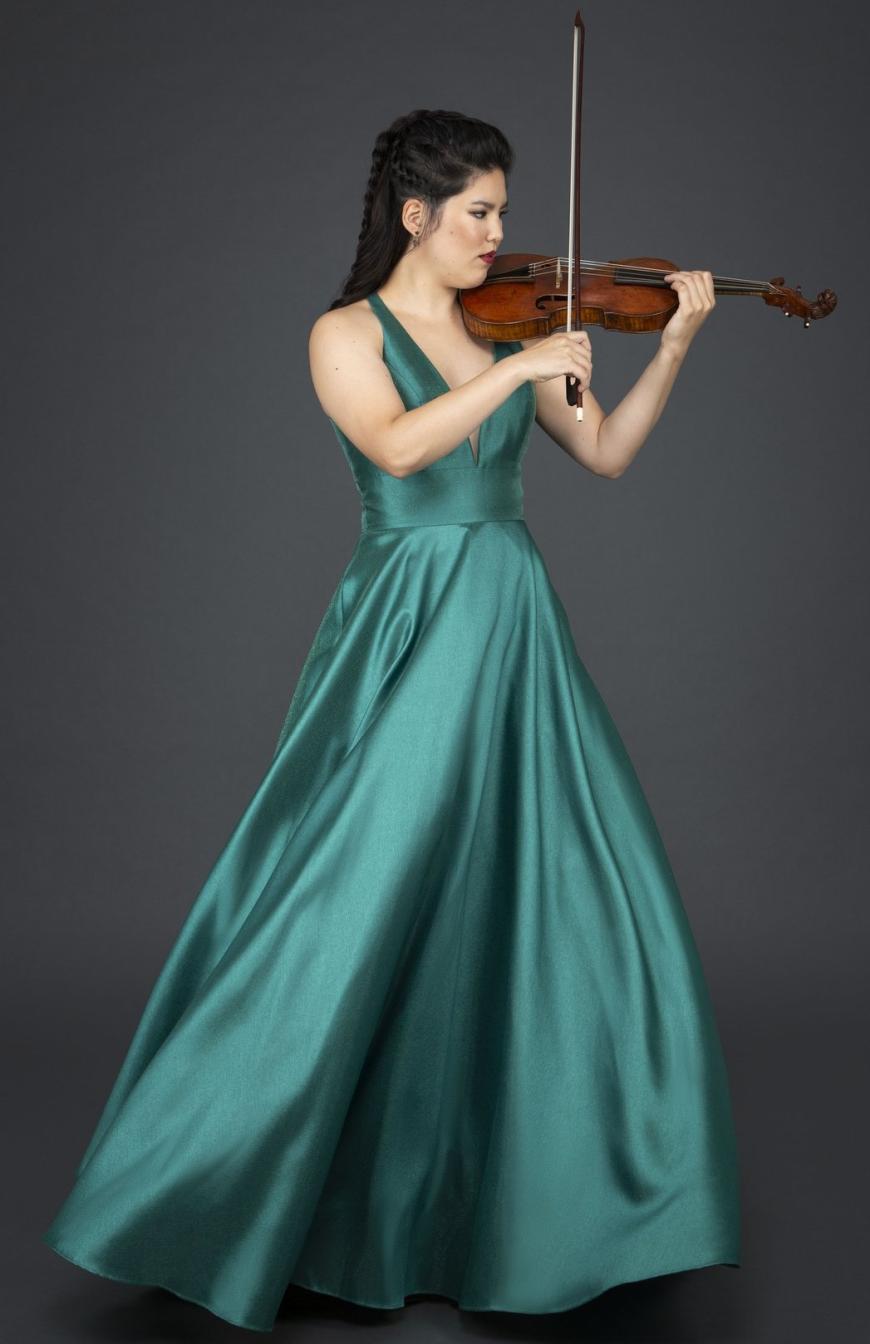
Wong plays both modern and Baroque violin and has appeared with ensembles such as the Academy of Ancient Music, American Bach Soloists, Jupiter Ensemble, Bach Collegium Japan, Les Arts Florissants, and others. Her first public performance at age 11 with Philharmonia West led to a Bachelor of Music from the University of Texas at Austin, a Master of Music from Indiana University, and a Master of Music in Historical Performance from The Juilliard School. In addition to the Avery Fisher Grant, Wong has received numerous awards, and she’s the founder of New Amsterdam Consort and a co-founder, with harpsichordist David Belkovski, of the early-music ensemble Twelfth Night.
In advance of her Cal Performances recital on Oct. 23, with Belkovski and cellist Coleman Itzkoff in tow, Wong spoke about the repertoire on the program and shared her thoughts on recent explorations, plus the direction of future journeys.
Let’s begin with the program you will be bringing to Cal Performances. What makes rehearsals with cellist Coleman Itzkoff so special?
It’s lucky that we’ve been good friends for a long time. In rehearsals it feels so comfortable. We respect each other so much that we can bounce ideas off each other. When you’re playing Baroque music, there are many ways you can form a continuo [the accompanying bass and keyboard instruments to the treble line]. A small group like this, with just me, David, and Coleman, there’s chance to experiment. You just have the strings [with] the harpsichord as a continuo. We explore what kind of sounds he can get. Maybe there’s a part where I want something really low and deep, so he jumps down an octave. We explore how many different sounds and colors and textures we can get out of this cello with gut strings. We can get so many more colors than with a modern cello. You can dig in physically with your bow. It sounds like a real human voice.
Would you say the same about working with David Belkovski?
David and I are also extremely close. We are both co-founders of Twelfth Night, so we have a relationship that we just are not afraid to tell each other anything. We spend so much time going over all kinds of music. With David, he’s playing the harpsichord, so he has the whole keyboard to create the continuo line. He’s the most imaginative continuo player you’ll ever hear. That’s why it’s so great to play with my dream team, with both of them there. Without the continuo, my line would be so boring. It would just be violin.
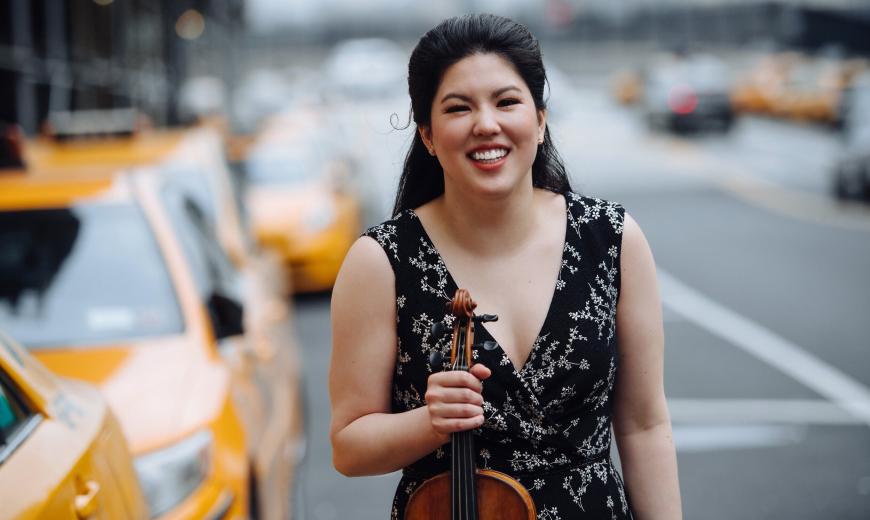
The works presented on the program — what would you highlight?
The Biber [Violin Sonata No. 5 in E Minor] was actually one of the first pieces I ever learned on the Baroque violin. I heard it with my teacher Stanley Ritchie, and it’s special to me. I thought, “What did I just hear?” I come from learning big concertos when I was young and being in competitions. I had never heard of Biber before, except for Justin Bieber. It opened up this world of “Wow, there are so many composers that I haven’t played.” Music became so different and so exciting. That piece never gets old. I find something new every time I look at it.
The Bach [Violin Sonata in A Major, BWV 1015] is one of my favorite sonatas he wrote. It’s so joyful. I had picked a lot of dark pieces and wanted to find something with more joy and happiness. It encapsulates that. It’s fun to play with David because we have equal parts. With a continuo, he’s playing a harmony, but with this, Bach wrote out full solo parts to play together.
A lot of [Giuseppe] Tartini’s pieces inspired me to become a Baroque violinist. We all grew up listening to the Fritz Kreisler transcription of Tartini’s “Devil’s Trill” Sonata with piano. When I heard a recording by Andrew Manze transcribed for solo violin, it got the fire going in me. I made me want to write my own transcription. I like to pay homage to Manze but also add my own things. It was the piece I used to audition for Juilliard, too, so there are lots of connections.
And everybody hopefully knows or has heard “La Folia” [the theme that here forms the basis of Arcangelo Corelli’s Violin Sonata Op. 5, No. 12]. I wanted to end with something everybody knows, but hopefully they’ve never heard it played this way before. We’ve made it our own. It’s the continuo that mostly makes it different from anyone else playing it. In school I was always trying to do things differently. Now I’m out of school, I can explore that more. It’s good to know what the treatises say, but the Baroque period — nobody agreed on anything, even back then.
Much has been made about your winning the Avery Fisher Grant as an early-music player. Why do you believe it took so long?
It’s not just that it took a long time; it’s education in general. We’ve had early music and historical performance in our institutes and American schools [in some form], but Juilliard only 11 or 12 years ago had for the first time HP [historical performance] as a major. I play both modern and Baroque violin, so I get both worlds. Not a lot of people do that, so I guess my perspective is unique. Playing both, they complement each other. But the worlds are so separated, it’s almost like institutions don’t want anything to do with HP or think HP doesn’t have anything to do with modern music.
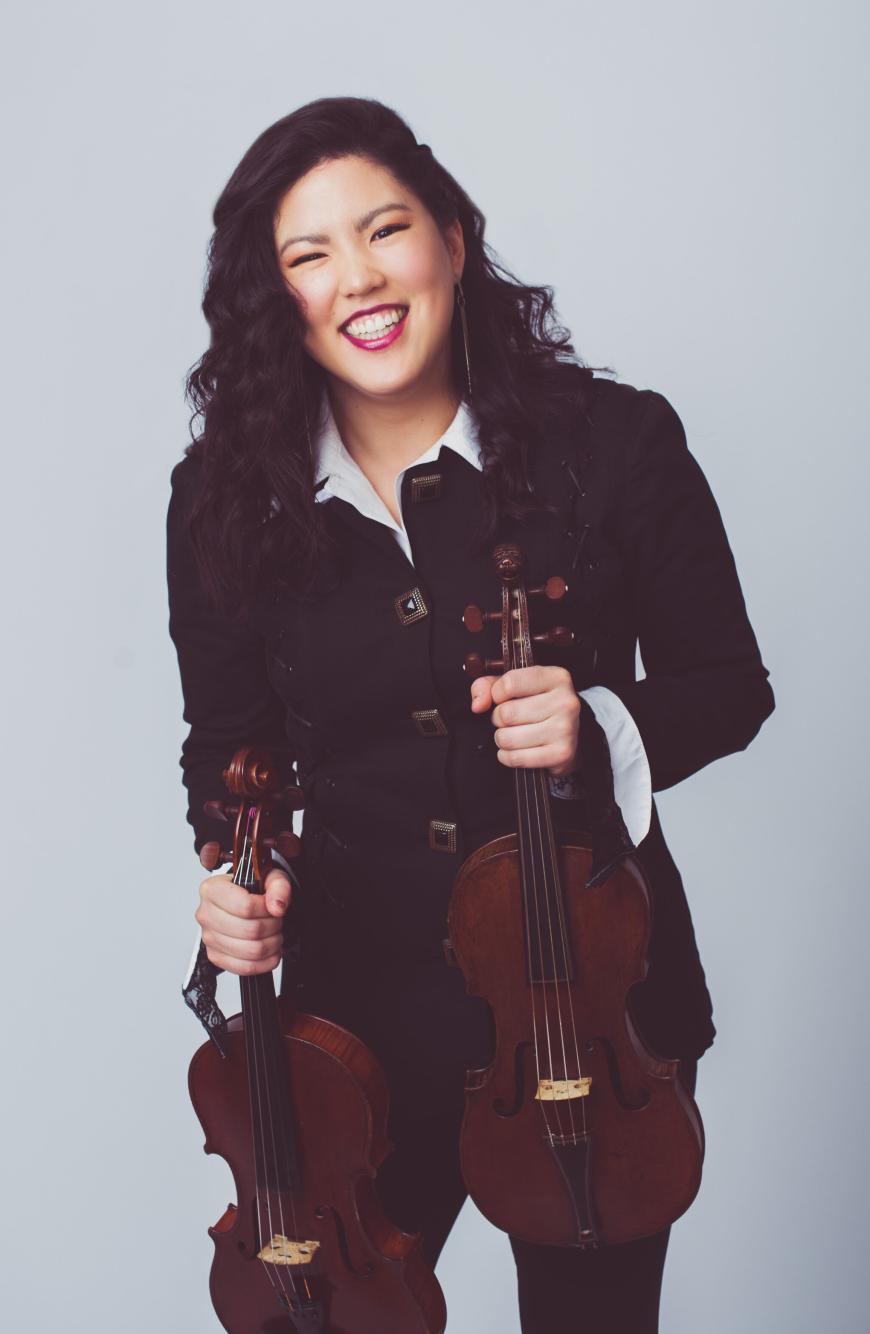
That divide is lessening now. Just playing around with a Baroque bow or putting gut strings on your instrument and playing Bach, you can learn things. Even switching for a day, you can learn a lot. If you don’t want to play a Baroque instrument, you can recreate a sound you explored, even if you don’t have the same tools. Everyone is more open-minded, and I hope that continues
What qualities of your instrument do you consider vital, and how long did you work with your Baroque violin before realizing it was right for you?
My instrument [built by Joachim Tielke, circa 1700] was found by Andrew Dipper in the 1980s, abandoned in a room. It was all broken. It took him until 2019 to restore it. Who played it between then and now? I always think about that and about how lucky I am to even own an instrument like this one from this famous maker. His instruments are in museums here in New York. I knew when I first tried it that it was the one. I played about 50 violins that day, but I knew this was the one I had to get. It has so much depth to the colors I try to get out of it. Some violins sound great at first, then you realize after a few weeks, this is all I’m going to get out of it. It’s one-dimensional. With this violin, I always discover things, and it teaches me new things, too.
You have a program with Seattle Baroque Orchestra that presents works by Marianne von Martinez, Cecilia Maria Barthélemon, Maria Antonia Walpurgis, Amélie-Julie Candeille, and Maddalena Laura Sirmen. How hard is it to find more early music by women composers to perform?
It’s pretty hard. There are not many, but there are some. But because of the constraints of their time, it’s not like you can continue to find these people. The women composers are just as good as the male composers. I’m just sad it took so long for them to be recognized. Take Maddalena Laura Sirmen, the violinist, who writes all these string quartets. They’re awesome and so fun to play. She had such a wild, interesting life. She got lucky, and the man she had to marry was open to her continuing her music career. It was like a partnership.
Which living composers are writing works intended for Baroque violin that most excite you?
I’m playing with harpsichordist Byron Schenkman & Friends. They commissioned Caroline Shaw, another Baroque violinist and composer. I’m also playing a piece by Jean Ahn. It’s really cool, with different sounds. I like that people are starting to write for these instruments now. And David, he writes for us, too. That’s really fun.
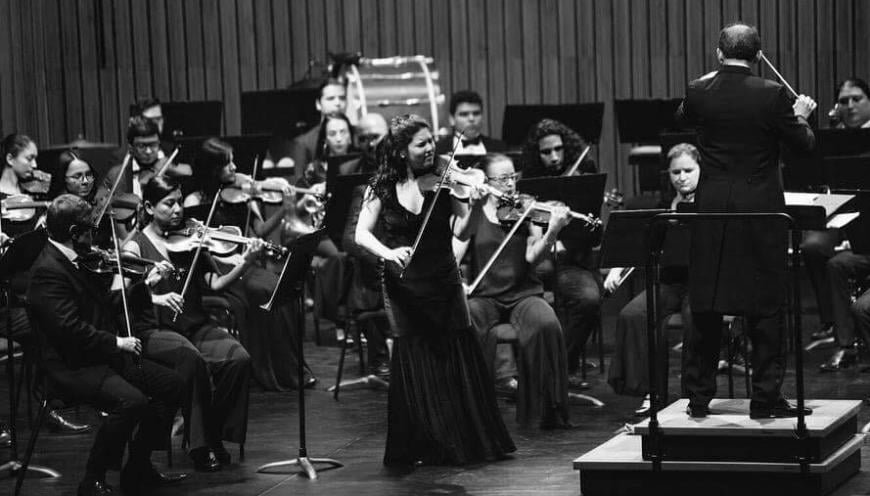
Did the slowdown during the pandemic allow time to find new colors or sounds with your instrument or seek out new repertoire?
Because I was isolating with Andrew Gonzalez, it gave me more time to explore violin and viola rep. He’s a violist and now my fiancé. If you ask, what is the rep written for viola, most people say Mozart. No one can name anything else. We explored that rep. Like, there are 75 duos for violin and viola by Alessandro Rolla.
What do you most value about resuming touring and in-person audience interactions?
I react to the vibe of the audience. Not having performances during the pandemic, I was playing for Zoom. Playing for a computer was weird. Every time onstage now, I can really feel the audience. I love talking to the audience afterwards. You get to know people that way. In Europe, they don’t approach as much, but in America, they do. I love that.


